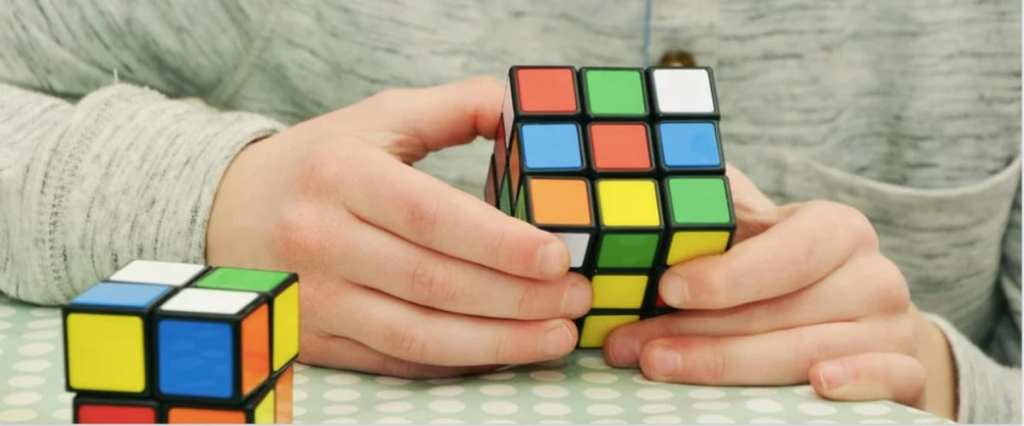Trending Now
The Rubik’s Cube was invented in 1974 by a Hungarian professor named Erno Rubik, and get this – he didn’t realize he was making a puzzle at all until he accidentally scrambled it up and couldn’t fix is.
“It was a code I myself had invented, yet I could not read it,” he famously said.
It took him a month to solve his own puzzle, which he eventually did by first rearranging each side’s corners to match.
https://www.instagram.com/p/B4hDpn7JT0y/
Luckily for you (not him) the internet now exists to tell you how to solve the infamous Cube.
David Singmaster’s layer-by-layer method for solving the Rubik’s Cube was the first to be published, and it’s still the most common method to teach beginners. He basically introduces algorithms – which here means a memorized sequence of moves that will have a specific effect on the Cube’s position – to cube solving.
In fact, all of the methods people use today require you to memorize a series of algorithms and to execute them in a specific order to solve the Cube.
There is more than one set of algorithms you can use to get to the end, and being able to finish a cube is not the same as being able to do it quickly. The way people speed up their solving is by memorizing lots of algorithms and then quickly determining the right algorithm to use in any given Cube situation.
https://www.instagram.com/p/B40ppgVDgqS/
In 1982, an American teenager, Minh Thai, solved the Rubik’s Cube in under 23 seconds, and eventually wrote a book called The Winning Solution that revealed his corners-first method.
In 1997, Jessica Friedrich and her method – later coined CFOP – set the gold standard for quickness, and in 2019, the current world record is just 3.47 seconds.
You can find YouTube videos for both the layer-by-layer method, CFOP, and just about all of the others, as well as pages with detailed instructions. It can seem daunting at first, but if you stick with it, you’ll see there’s a method to the madness, and solving the Cube isn’t about smarts, but memorization and determination.
https://www.instagram.com/p/B40UDP6JYuy/
Solving it fast is a different story, so if you’re after that world record, best of luck.
If you decide to have a go at it sans instructions, though, I’d set your sights on beating Erno Rubik’s time of a month.
And best of luck with that, too.






